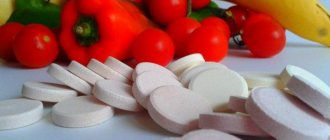It is amazing that in the 21st century, about 2 billion people on the planet are zinc deficient. You're especially likely to be one of them if you're over 50, diabetic, drink alcohol, vegetarian, take zinc-depleting medications, or have a bacterium in your digestive tract called Helicobacter pylori, which reduces stomach acid levels. necessary for the absorption of zinc.
The human body contains 2-3 grams (2000-3000 milligrams) of zinc.
Most of it is found in the adrenal glands, brain and eyes. Because most zinc is stored inside cells and not found in the blood, blood tests for zinc deficiency are notoriously inaccurate. And most doctors don't know about this!
On average, a person gets about 10 milligrams of zinc per day from food, but, at best, only 2-3 milligrams are absorbed. Foods fortified with zinc often do not affect the body’s supply of zinc, since the main problem of mineral deficiency is its poor absorption.
The situation is aggravated by the fact that modern medicine does not care about the deficiency of essential nutrients. Most doctors incorrectly teach that diet provides adequate nutrition; deal with each disease separately, without even trying to suggest that the ailment may be caused by a deficiency of certain vitamins or minerals.
Thus, the epidemic of zinc malnutrition continues unabated. And all the diseases associated with a deficiency of a vital mineral fill doctors' offices every day. Meanwhile, you can endlessly take medications for the heart, immunity, memory, etc., when just one tablet of a zinc drug could fix everything.
After all, zinc is a vital mineral for maintaining optimal health. Zinc is involved in the processes of cell reproduction, the functioning of the body's immune and antioxidant systems, regulation of metabolism and many other biological processes.
Why is zinc deficiency dangerous?
Common symptoms of zinc deficiency are: leaky gut syndrome, diarrhea, blindness (alcohol related), lack of appetite, loss of smell or taste, mental depression, weak immunity, hair loss, impotence, poor wound healing, acne, warts, mental dullness, dyslexia and growth retardation in children.
Severe zinc deficiency results in growth retardation in children, skin lesions, impaired wound healing, anemia, anorexia, visual impairment and even mental retardation.
- Metabolic processes in all organ systems. Zinc deficiency disrupts the activity of all zinc-containing enzymes and processes associated with increased cell growth and division (growth, regeneration, wound healing, spermatogenesis, DNA molecule stabilization), disrupts the exchange of proteins and nucleic acids, and reduces the overall level of energy processes.
- Embryonic development. Zinc deficiency is an unfavorable factor that has a teratogenic effect (developmental defects such as hydrocephalus, microophthalmia, heart defects, etc. can develop)
- The immune system. Zinc deficiency suppresses the immune system, which is manifested by frequent infectious diseases and impaired formation of immunity when children are vaccinated and is accompanied by a decrease in the mass of the thymus, lymph nodes, spleen, tonsils, and disruption of the normal formation of leukocytes and lymphocytes
- The cardiovascular system. Zinc deficiency is one of the causes of the development of chronic heart failure, coronary heart disease, and arterial hypertension.
- Digestive system. Zinc deficiency leads to the development of gastric and duodenal ulcers, chronic gastroduodenitis, Crohn's disease, celiac disease, and biliary tract diseases.
- Sensory systems. Zinc deficiency is manifested by dizziness, tinnitus, hearing loss, decreased sense of smell and taste, and can cause the development of cataracts.
- Endocrine system. Zinc deficiency disrupts the synthesis of insulin and hormones of the thyroid gland, pituitary gland, adrenal glands, prostate gland and testes.
- Nervous system. Zinc deficiency causes the development of depression and emotional lability, decreased concentration and memory, and peripheral neuropathies.
- Leather and its derivatives. Zinc deficiency disrupts the normal regeneration of epithelial cells and causes acne, seborrhea, alopecia, excessive sweating, psoriasis, and acrodermatitis enteropathica.
- Male reproductive system. Zinc deficiency slows down puberty, disrupts the process of spermatogenesis, reduces testosterone levels, and increases the risk of developing prostate adenoma.
- Female reproductive system. Zinc deficiency negatively affects all estrogen-dependent processes and is one of the causes of menstrual irregularities, ovulation, PMS, premature birth, toxicosis during pregnancy, and the birth of an immature fetus with a deficiency in weight or developmental defects.
Excess selenium – symptoms of selenosis
Excessive consumption of selenium is harmful to the body. Prolonged intake of too much of it leads to selenosis.
Excess of the mineral leads to brittleness, discoloration and loss of nails and increases hair loss. Sure signs of selenium overdose:
- pain in the charters;
- fatigue;
- nervousness and irritability;
- gastrointestinal disorders (nausea, vomiting, diarrhea);
- excessive sweating;
- skin changes;
- garlic breath.
Accidental single ingestion of a large dose of selenium is toxic and can lead to cirrhosis, pulmonary edema and death. Perhaps an excess of the mineral in the body is also indirectly associated with the development of type II diabetes. In addition, elevated selenium levels can cause oxidative stress in cells and increase the risk of cancer.
Diagnosis of zinc deficiency
Most zinc is stored inside cells, making it difficult to detect a deficiency with a simple blood test. Thus, low blood levels of zinc indicate deficiency, but adequate blood levels of zinc are not necessarily a reliable indicator of micronutrient sufficiency.
Because plasma zinc levels do not correlate with zinc intake, such a test cannot be used to determine the effectiveness of zinc supplements.
Other tests for zinc deficiency include a urine test and a hair strand test to measure zinc levels.
Summarize
- Although some foods contain zinc well above the TIDL of 40 mg per day, there have been no cases of zinc poisoning from naturally occurring zinc in foods.
- However, zinc overdose can occur due to dietary supplements or accidental overuse.
- Zinc poisoning can have both acute and chronic effects. The severity of your symptoms depends largely on the dose and duration of use.
- Gastrointestinal symptoms are likely to occur with a single dose of high doses of zinc. In severe cases, such as accidental ingestion of household products containing zinc, gastrointestinal ulceration and bleeding may occur.
- Long-term use may cause less severe but serious side effects, such as low levels of "good" HDL cholesterol, copper deficiency, and a suppressed immune system.
- In general, you should only exceed the prescribed TDL under the supervision of a physician.
The article was prepared by experts for informational purposes only. It should not be used as a guide for treating medical conditions and is not a substitute for professional medical advice, diagnosis, or treatment. In case of illness or any symptoms, you should always consult a doctor and not self-medicate.
Tags: Zinc
About the author: Larisa Kuts
Board-certified physician specializing in family medicine, geriatrics and integrative medicine. Clinical experience as a physician ranging from disease management to family practice and emergency care.
- Related Posts
- What is vitamin F? Application, properties, product list
- Lutein: beneficial properties, what foods it contains
- Do biotin supplements help improve beard growth?
« Previous entry
Zinc Supplements: Dosage
The recommended daily intake (RDA) for zinc is just 15 milligrams per day for adult men and 8 mg for women. However, this norm should definitely be increased for:
- older people, who usually have difficulty absorbing zinc;
- vegetarians;
- people infected with Helicobacter pylori, which turns off the secretion of stomach acid;
- people taking drugs that destroy zinc (ACE inhibitors, histamine blockers, diuretics, beta blockers, cortisone, estrogen, steroidal anti-inflammatory drugs.
Of course, in order not to experience a dangerous deficiency, you can look for foods rich in zinc. But frankly, other than oysters (about 74.0 mg of zinc per 90 grams), modern food cannot provide a person with enough micronutrients.
If there is a deficiency of the mineral, it is optimal to take 10-25 mg of zinc daily in the form of zinc-containing dietary supplements, for example, the drug ZINC AP from.
The drug ZINC AP was created to qualitatively replenish zinc deficiency in the body. The drug contains zinc citrate - one of the best sources of zinc in terms of bioavailability. 1 tablet of ZINC AP contains 12 mg of the mineral and regular intake of 1-2 tablets of ZINC AP per day will help maintain the body in an active, healthy state.
Selenium standards for adults and children
The rate of selenium intake depends on age.
Table 1. Selenium consumption standards depending on age
| Age, condition | Selenium norm |
| Children | ranges from 20 to 55 mcg/day |
| Adults | 55 mcg/day |
| During pregnancy and breastfeeding | recommended daily dose – 60-70 mcg |
Vitamin D (Calciferol)
This is a substance that is produced by the adrenal glands after exposure to ultraviolet B rays on the skin. Vitamin D is similar in structure to steroid hormones. It can accumulate in adipose tissue and therefore, before taking products with calciferol, it is necessary to take a blood test for its content in order to avoid an overdose.
There are 6 forms of vitamin D, but most often in food, medicine and vitamin complexes it is found in 2 forms - vitamin D2 and D3.
Preparations and complex products with vitamin D:
- Vitamin D3;
- Calcium D3 Nycomed Forte;
- Calcemin Advance No. 60;
- Vitamin D2;
- Aquavit D3;
- Decrystol D3;
- Calcium magnesium with vitamin D3.
Vitamin D: the benefits of the “sunshine vitamin”
Vitamin D3 (cholecalciferol) is considered the most effective of all forms of the substance in question. It is involved in the regulation of mineral metabolism, helps normalize blood clotting, and suppresses the growth and formation of cancer cells. Separately, the ability of this vitamin to ensure the growth and development of bone tissue is highlighted. Its deficiency leads to rickets.
Vitamin D3 has a significant effect on the body's immune function. Thus, this substance increases the motor (chemotaxis) and phagocytic function (capture and absorption of pathogens) of immune cells, which leads to a rapid reaction to a foreign body, for example, a virus or bacteria. However, it is important to note that in order for vitamin D to provide benefits, it must be taken in the recommended amount.
Daily value of vitamin D
Each age category is recommended to drink the vitamin in question in the following quantities:
- children under 1 year - 10 mcg;
- children from 1 year to 18 years - 15 mcg;
- adults 19 years and older - 15 mcg.
The maximum permissible dose that does not lead to negative consequences is 100 mcg.
Vitamin D overdose
It should be emphasized once again that the substance in question can accumulate in the body, so if it is taken in large quantities, it can lead to an overdose and have a toxic effect. Vitamin D functions like a steroid hormone. It is involved in signaling between cells, and if consumed excessively, this process can be disrupted.
Due to an overdose, the following reactions occur:
- constipation and problems with stool;
- weakness;
- hypercalcemia (increased levels of calcium in the blood) and kidney stones;
- renal failure;
- weight loss;
- nervous itching;
- heart rhythm problems;
- nausea;
- confusion and vomiting;
- vomit;
- stomach ache;
- feeling tired and dizzy.
Interaction with other substances and drugs
Hormonal drugs . This category of drugs includes contraception, glucocorticosteroids, and drugs for the treatment of the thyroid gland. Taking vitamin D may interfere with your body's ability to absorb these medications.
Anticonvulsant drugs . They increase the breakdown of vitamin D and reduce the rate of absorption of calcium into the blood.
Laxatives . Long-term use of strong laxatives leads to decreased absorption of vitamin D and calcium.
Diuretics . Taking these medications together with vitamin D can lead to hypercalcemia, which provokes urolithiasis in the kidneys.
Take vitamins in recommended dosages and do not combine them with the substances and drugs indicated in the text, so as not to harm your health.
Before you start taking vitamins and minerals, it is best to consult your doctor. Remember, an overdose of vitamins is unsafe!
In addition to vitamins to strengthen the immune system in winter, you can also drink Omega-3 dietary supplements. Read an informative article about 15 proven beneficial properties of Omega-3 dietary supplements .
Pharmacies sell medications with 3 different forms of vitamin D, but which one is the most effective? Find out from our new material which vitamin D to buy in pharmacies to protect yourself from viruses and colds .
Many people believe that a high dose of ascorbic acid can help fight colds. Read how right they are in the article about whether vitamin C improves immunity and whether a cold will go away if you take a shock dosage of ascorbic acid .
apteka24.ua is the first online pharmacy you can trust.










